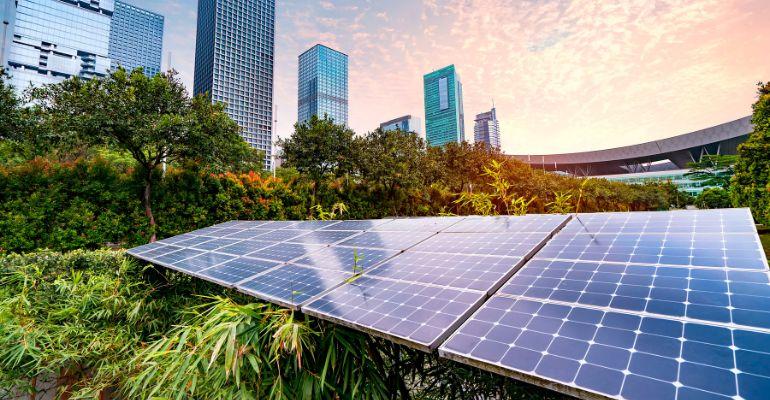Sustainability has become an increasingly important pillar in global business strategies, and the healthcare industry is no exception. As the world turns attention towards the challenge of climate change and environmental sustainability at COP28, it’s essential to understand the often-overlooked aspect of healthcare’s role in sustainability.
As a university hospital, Fakeeh University Hospital's mission is to improve the health of individuals in the community we serve and the world we live in. In the recent past, we have evidence that the health of our planet has a significant bearing on individual health. The effect of climate change is prevalent worldwide and can have a detrimental impact on human health.
Global warming is a major driver for climate change, and hospitals reportedly contribute towards 4 per cent of the world’s carbon footprint. Healthcare facilities are often energy-intensive enterprises and contribute inadvertently to climate change, leading to respiratory and other illnesses. There is an increasing need to bring this number down.
According to a 2022 Deloitte report, 97 per cent of 2,000 CEOs surveyed expressed that their companies have already felt the negative impacts of climate change, while 63 per cent have said that their organisations are concerned about the continuous harm it could continue to cause.
At Fakeeh University Hospital (FUH), we have an articulated vision for healthcare sustainability that is on par with the UAE’s vision of sustainability. We understand that our responsibility towards the community extends beyond our facility and are committed to the UAE Green Agenda framework and sustainability vision.
Fakeeh University Hospital, located in Dubai Silicon Oasis, is committed to healing, nurturing, and creating a healthier world whilst providing medical care second to none. Since our inception, we have ensured the implementation of several energy-efficient and sustainable building practices. We also prioritise environmental conservation with initiatives like efficient lighting for a patient-centred, eco-friendly healing environment.
Related: Advancing sustainability in healthcare | COP28 Report
As a technologically adept and environmentally friendly facility, we incorporate sophisticated efficiency measures to ensure innovative and structured energy models across departments, including reduced water and energy consumption, reducing our carbon footprint, sustainable purchase programs and eco-friendly initiatives within the infrastructure. Some highlights of our sustainable practices include:
- Gold LEED certification as a recognition of FUH’S innovation in implementing Internationally recognised green building design and specifications.
- The only private hospital in the world to join the Sustainable Markets Initiative, which was launched by His Majesty King Charles III, when he was Prince of Wales.
- Complete omission of materials containing lead, cadmium, or copper, using only LED lamps that contain zero mercury content.
- It is built with highly insulated mass walls and roofs, with user-friendly lighting controls for the internal and external lighting systems.
- 42.03 per cent utilisation of sustainably sourced materials and products.
- 43.73 per cent of the total freestanding furniture consists of sustainable, compliant materials.
We recently introduced the pioneering Green Anesthesia and Green Lab initiatives, highlighting the potential for positive change across the healthcare industry and setting a precedent for a greener and more sustainable future.
Innovation and sustainability work hand in hand, and Fakeeh University Hospital is a classic example of it. We exemplify this synergy, revolutionising healthcare through sustainable technological innovations like robotic pharmacies, bot delivery of medications, teleconsultation services, technologically adept healthcare practitioners, and more that complement compassionate care.
Related: How healthcare can reduce carbon footprint and promote eco-friendly practices
The challenges posed by the growing population leading unhealthy lifestyles, increased incidence of chronic diseases, the ageing demographic and all of this combined with health implications caused by climate change require a sustainable transformation. Addressing these issues underscores the importance for healthcare institutions to create empowered communities that share the responsibility of health advocacy.
At FUH, sustainability is a core organisational value, instilling a sense of accountability in every individual. There are several means for healthcare organisations to achieve sustainability. However, it requires collective effort. Embracing sustainable operational practices, establishing achievable targets, and monitoring mechanisms can go a long way in achieving the goal. In today’s era, this shared mission towards creating healthier communities unites the healthcare industry. With determination and collaboration, the healthcare industry truly has the power to become the architect of change.

Dr. Mohaymen Abdelghany is the Vice-President of Fakeeh Care, UAE, and CEO, of Fakeeh University Hospital, Dubai






